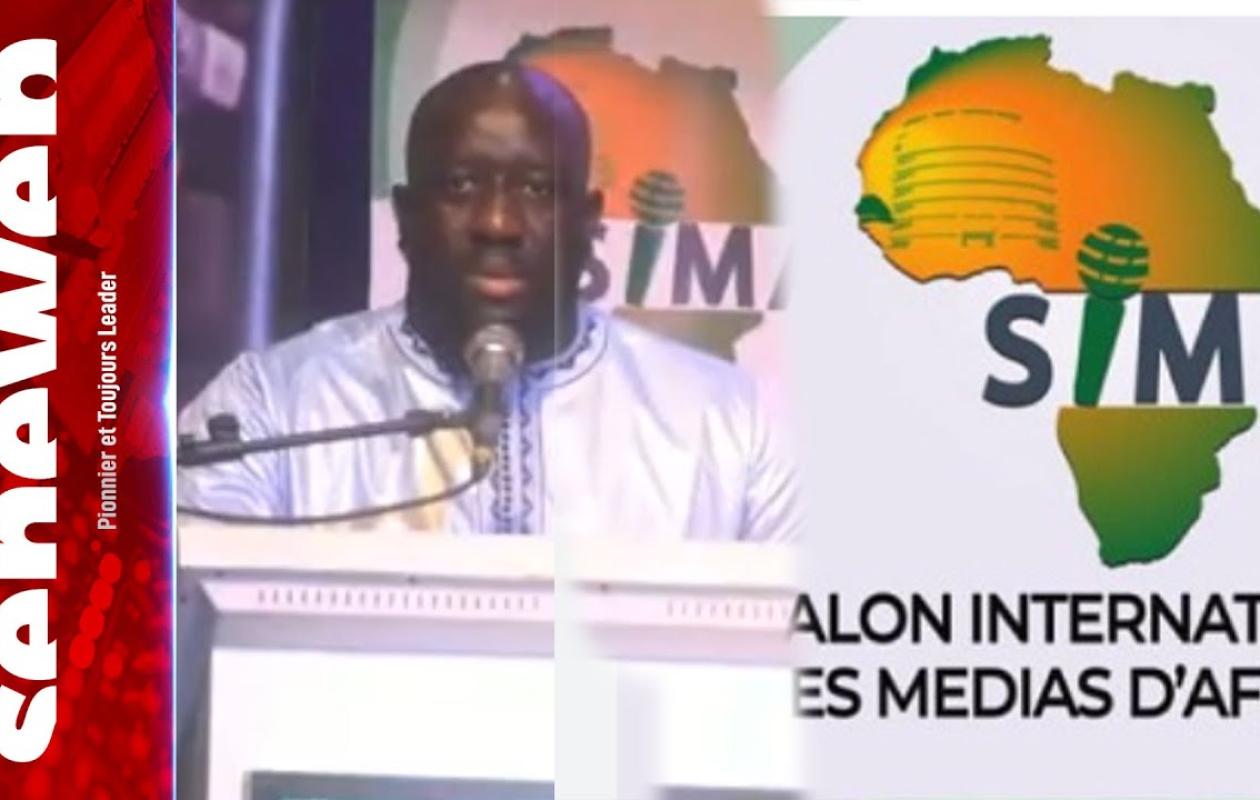
Ouverture du SIMA : Alioune Sall appelle à un écosystème médiatique africain "innovant et souverain"
The first edition of the International African Media Fair (SIMA) opened this Monday, October 27, 2025, in Dakar, Senegal. Under the theme: "Africa facing new media challenges," this meeting is organized by the Babacar Touré Press House of Senegal, under the aegis of the Ministry of Communication, Telecommunications and Digital Affairs. The opening ceremony was chaired by the Minister of Communication, Telecommunications and Digital Affairs of Senegal, Mr. Alioune Sall, in the presence of the Minister of Information of Gambia, Dr. Ismaila Ceesay; the Minister of Culture, Arts, Communication and Relations with Parliament of Mauritania, Mr. El Houssein Ould Medou; the Deputy Minister of Communication of Liberia, Mr. Daniel O. Sando; the Secretary General of the Ministry of Communication of Chad, Mr. Mahamath Nour; the Secretary General of Reporters Without Borders, Mr. Thibaut Bruttin; among others.
SIMA: a shared ambition, that of building together a dynamic, innovative, ethical and sovereign African media ecosystem
The International African Media Fair (SIMA) is a shared ambition: to build together a dynamic, innovative, ethical, and sovereign African media ecosystem. This first edition, which features Mali as guest of honor, also hosts the Regional Conference on the Right to Information in the Sahel (CREDI-SAHEL), initiated by Reporters Without Borders (RSF).
Chairing the official opening of the meeting, which will be held from October 27 to 30 at the Maison de la Presse Babacar Touré in Dakar, the Senegalese Minister of Communication, Telecommunications and Digital Affairs stressed the need to build the foundations of an African media ecosystem capable of competing, cooperating and innovating on a global scale.
“The world is experiencing a profound transformation of the media landscape. The boundaries between traditional and digital media are blurring. Artificial intelligence, augmented reality, and social media technologies are redefining the production and consumption of information. Africa, long a spectator of these changes, is now a fully active participant. African newsrooms are adopting artificial intelligence to automate verification tasks, African startups are developing data journalism tools, and young content creators are influencing millions of citizens. But these technological advances must be accompanied by ethical reflection and responsible governance. Because while digital technology opens up unprecedented perspectives, it also carries new risks,” stressed Mr. Alioune Sall.
Faced with this challenge, the state authority maintains that the role of the press is becoming "more crucial than ever." "It is no longer just the relay of current events, but the moral and professional bulwark against the distortion of reality. It must be the compass of truth in an ocean of contradictory information. It is up to the press, through respect for ethical rules, rigorous fact-checking, and refusal to rush into action, to restore public trust. Because in a world saturated with images and rumors, credibility remains the journalist's primary asset," he insisted.
In this regard, the minister urged everyone to demonstrate a sense of responsibility. "I call here for shared responsibility: that of the media, journalists, but also public authorities and digital platform stakeholders. Together, we must promote a healthy media environment that protects freedom of expression while firmly combating discourse that divides and destroys," Alioune Sall suggested.
According to him, continuing education, access to digital tools, and capacity building must be at the heart of the government's agenda. "We must build the foundations of an African media ecosystem capable of competing, cooperating, and innovating on a global scale. Our priorities must be clear: train and professionalize our journalists in the digital and artificial intelligence era; strengthen South-South cooperation to pool our resources and experiences; encourage the production of African content that reflects our realities, cultures, and aspirations; and, above all, reconcile citizens with their press by restoring trust, rigor, and the demand for truth," the Senegalese Minister of Communication immediately stated.
According to him, "without well-trained journalists, without economically viable media, freedom of information remains an illusion."
Commentaires (0)
Participer à la Discussion
Règles de la communauté :
💡 Astuce : Utilisez des emojis depuis votre téléphone ou le module emoji ci-dessous. Cliquez sur GIF pour ajouter un GIF animé. Collez un lien X/Twitter, TikTok ou Instagram pour l'afficher automatiquement.